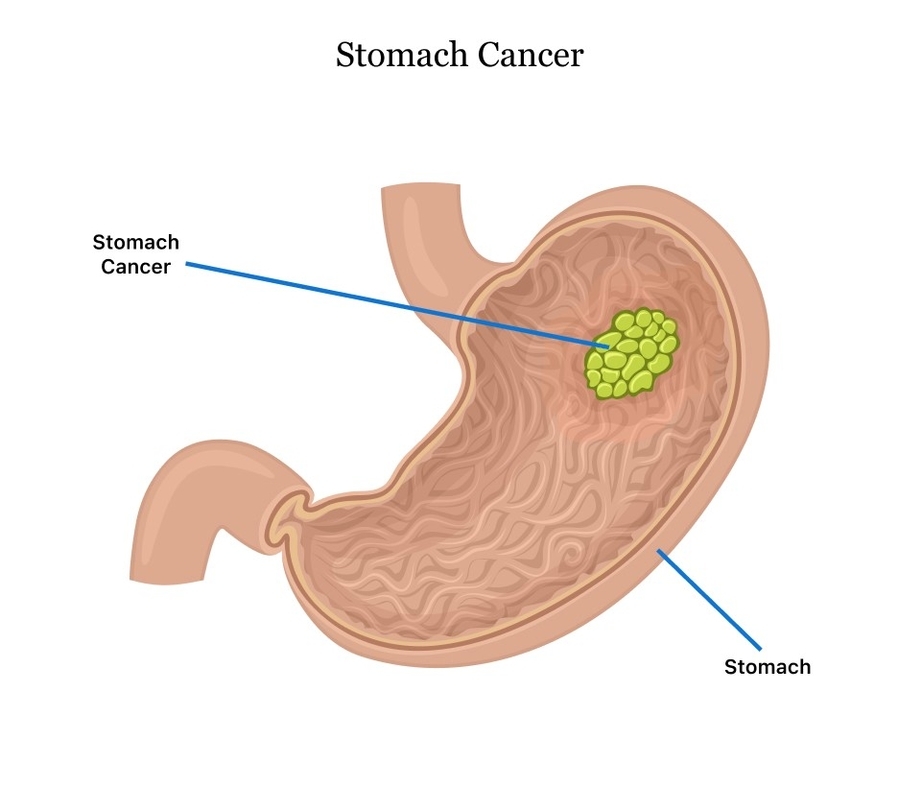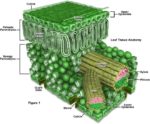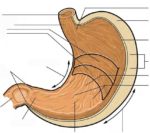Stomach Cancer Symptoms
tomach cancer, also known as gastric cancer, is a disease that develops from the inner lining of the stomach. It is often difficult to diagnose in its early stages because it typically doesn’t cause symptoms until the advanced stage. Here are some of the symptoms associated with stomach cancer:
1. Fatigue: A constant feeling of tiredness and lack of energy is a common symptom.
2. Stomach Pain: This is often a pain in the upper abdomen that may worsen after eating.
3. Bloating: This is a feeling of fullness in the stomach, especially after eating.
4. Feeling Full Quickly: Even after eating very little, one may feel full.
5. Severe and Persistent Heartburn: This is a burning sensation in the chest, usually after eating, which might be worse at night.
6. Severe and Persistent Indigestion: This is a discomfort or pain in the upper abdomen.
7. Persistent Nausea and Vomiting: This can be a symptom of many conditions, including stomach cancer.
8. Loss of Appetite: This is when you have less desire to eat than you used to.
9. Unintentional Weight Loss: Losing weight without trying can be a sign of many different types of cancer.
In the later stages of stomach cancer, symptoms such as vomiting blood, having black stools, feeling very tired, and losing weight without trying may occur. If the cancer spreads to other parts of the body, it may cause symptoms specific to where it spreads. For example, when cancer spreads to the lymph nodes, it might cause lumps you can feel through the skin. Cancer that spreads to the liver might cause yellowing of the skin and whites of the eyes.
It’s important to note that these symptoms can also be caused by conditions other than cancer, such as dyspepsia, gastritis, or a peptic ulcer. Therefore, if you’re experiencing any of these symptoms, especially if they’re new, severe, or persistent, it’s important to seek medical attention to determine the cause.
Causes of Stomach Cancer
tomach cancer is generally the result of a genetic change that occurs in the cells, which leads to continuous division of cells. Factors influencing these genetic changes include gastro-esophageal reflux disease (GERD), family history, smoking, obesity, increased intake of smoked and salted food, reduced intake of fruits and vegetables, Helicobacter pylori infection, eating food contaminated by fungal toxin, stomach polyps, pernicious anemia resulting from poor absorption of vitamin B12 by the intestines, and alcohol abuse.
Prevention of Stomach Cancer
While it’s not possible to prevent stomach cancer entirely, certain lifestyle changes can reduce the risk. These include having a regular exercise regimen, including fruits and vegetables in your everyday diet, reducing the intake of smoked and salty foods, quitting smoking, maintaining a healthy height to weight ratio, treating stomach infections, and avoiding overuse of aspirin or NSAIDs.
Diagnosis and Treatment
Diagnosis of stomach cancer often involves several tests, including blood tests, endoscopy, barium swallow, biopsy, and laparoscopy. Treatment options include chemotherapy, radiation therapy, and surgery, either alone or in combination. The choice of treatment is based on the stage, severity, and overall health of the patient.
Remember, if you’re experiencing any of the symptoms mentioned above, it’s important to consult with a healthcare provider for an accurate diagnosis and treatment..



